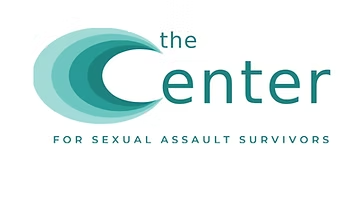Breaking Barriers: National Minority Mental Health Awareness Month
- The Center For Sexual Assault Survivors
- Jul 10, 2025
- 2 min read
By Ariana Rodriguez-Goris

Here at The Center for Sexual Assault Survivors we service all people. With that being said we understand that there are significant barriers for minority populations, especially in regard to behavioral health care. Too often we assume everyone understands specific terms or language so throughout this blog post the goal is not only to advocate and raise awareness but also to understand. Without understanding true advocacy and awareness cannot be achieved.
With that being said we have seen in the past decade significant strides in raising awareness of the importance in mental health, but what is mental health? According to the Mental Health Organization mental health is defined as, "Mental health is a state of mental well-being that enables people to cope with the stresses of life, realize their abilities, learn well and work well, and contribute to their community. It is an integral component of health and well-being that underpins our individual and collective abilities to make decisions, build relationships and shape the world we live in. Mental health is a basic human right. And it is crucial to personal, community and socio-economic development."

Stable mental health is not a luxury it is a human right as stated by the Mental Health Organization, which is one of the first barriers in this very large conversation around access to behavioral health care in regard to the lack thereof for minorities in America. Other significant barriers for minorities to access behavioral healthcare is language barriers, cultural misunderstandings, potential financial barriers/ constraints, geographical isolation and distrust. While these blockades may not be exclusive to minorities in America and may not apply to all minorities in America for a significant number of minorities in America these blocks are very prevalent.
The term behavioral health care has been used several times throughout this article but what is behavioral health and what is the difference from mental health? Health line defines behavior health as, "Behavioral health is interlinked with mental health, but behavioral health looks at everyday behaviors and how they influence both physical and mental well-being." This definition perfectly defines behavioral health while also explaining that it encompasses mental health as well. This conversation is so large that it is not always obvious how interconnected the lack of access to behavioral health care can affect people.
Prime example: here at The Center for Sexual Assault Survivors we offer free and confidential counseling because we understand the long-term harmful effects that sexual assault can have on people, a person's ability to function on their day to day can be completely altered after a sexual assault. To experience that and be unable to receive care because your circumstances associated with your cultural, ethnic or racial background is unfair to say the least. During National Mental Health Awareness Month, we want to make sure that we are not only acknowledge these barriers but raise awareness of them. Here at The Center, we offer multiple services (free 1 on 1 confidential counseling, women's support group, a 24/7 hot line, community education, a woman's support group, men's support group and more) to help combat some of these barriers, happy National Minority Mental Health Awareness Month.

References





Comments